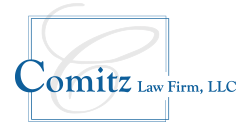Powers of Attorney (POA)
These legal instruments enable a person (the “principal”) to grant legal authority to another person (the “agent” or “attorney-in-fact”) to make property, financial and certain legal decisions for the principal.
Powers of attorney may be limited in scope and/or duration. A general power of attorney is much broader, giving the agent the same authority as the principal. In Pennsylvania, a durable financial power of attorney allows the principal to delegate any type of financial responsibility to the agent.
A durable power of attorney becomes effective immediately upon the creation of the document and survives and stays effective even if the principal becomes incapacitated. On the other hand, a springing power of attorney does not become effective when the document is created. Instead, it “springs” to life only upon a certain event that’s designated in the POA.
If someone becomes unable to manage their affairs and they do not have a power of attorney in place, a court may appoint a guardian to handle those affairs for them.
Health Care Powers of Attorney
A health care power of attorney is a legal document that allows you (the “principal”) to name someone as your health care agent. The agent is authorized to oversee your medical care and make health care decisions for you if you ever become unable to do so. Before the agent can exercise his or her power the principal’s physician must first certify that the patient is not able to make medical decisions.


